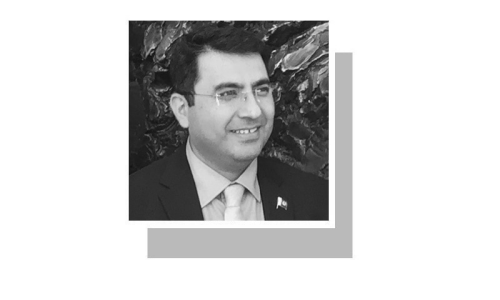KUALA LUMPUR: The Islamic Financial Services Board (IFSB) will release an updated 10-year industry roadmap next week as it places greater emphasis on the implementation of its standards with regulators around the globe.
Guidelines from Kuala Lumpur-based IFSB, one of the main standard-setting bodies for Islamic finance, are gaining prominence as the industry takes a greater share of the banking sector in some Muslim-majority countries and makes inroads in western markets.
The IFSB will release a Mid-Term Review (MTR) of the industry’s 10-year framework document on May 19, outlining benchmarks to monitor industry progress in a more focused way, IFSB secretary-general Jaseem Ahmed told Reuters.
The original framework, released in 2007 by the IFSB and the research arm of the Jeddah-based Islamic Development Bank, identified 16 recommendations for policymakers but did not spell out detailed metrics to track their progress.
“The MTR proposes a stronger implementation plan. This plan includes concrete initiatives — to be undertaken by a range of stakeholders — to bring the recommendations to life.”
Founded in 2002, the IFSB’s initial efforts have focused on winning a wide membership base, leaving implementation and enforcement to national regulators to decide, a decision driven in part by their diverse legal and regulatory backgrounds.
Now, however, the 184-member IFSB hopes to draw up more concrete steps for regulators while still leaving some flexibility given the wide range of industry development.
“A roadmap can be very helpful to national authorities, and the national industry, but in practice quite a few years of experience is needed before it becomes practical to develop an effective roadmap.”
Over the last decade, the IFSB has issued 22 standards and guidelines and now plans to develop new standards for Islamic reinsurance (retakaful) and capital markets, said Ahmed ahead of the IFSB’s annual summit to be held in Mauritius next week.
“The greatest need is to bring takaful and capital markets to a state of comparability, from the regulatory perspective, with the banking sector. So these are two areas where we are gearing up for additional issues.”
A working group to study a standard for retakaful has now been launched and another working group will soon be set up to study a standard for capital markets, Ahmed said.
“This is an important initiative to facilitate the integration of Islamic finance into the global economy by bringing it within the global surveillance mechanism of the International Monetary Fund and the World Bank.”
In the past two years, the IFSB has issued separate guidelines on liquidity risk management, stress testing and capital adequacy, with further guidance in the pipeline.
The IFSB has now begun work on a technical note on stress testing and it has also conducted a study on liquidity issues to help shape a guidance note.
The latter would take up the challenges posed to Islamic banks by the liquidity coverage ratio and net stable funding ratio introduced by the Basel III framework, said Ahmed.
Published in Dawn, May 14th, 2014.












































Dear visitor, the comments section is undergoing an overhaul and will return soon.